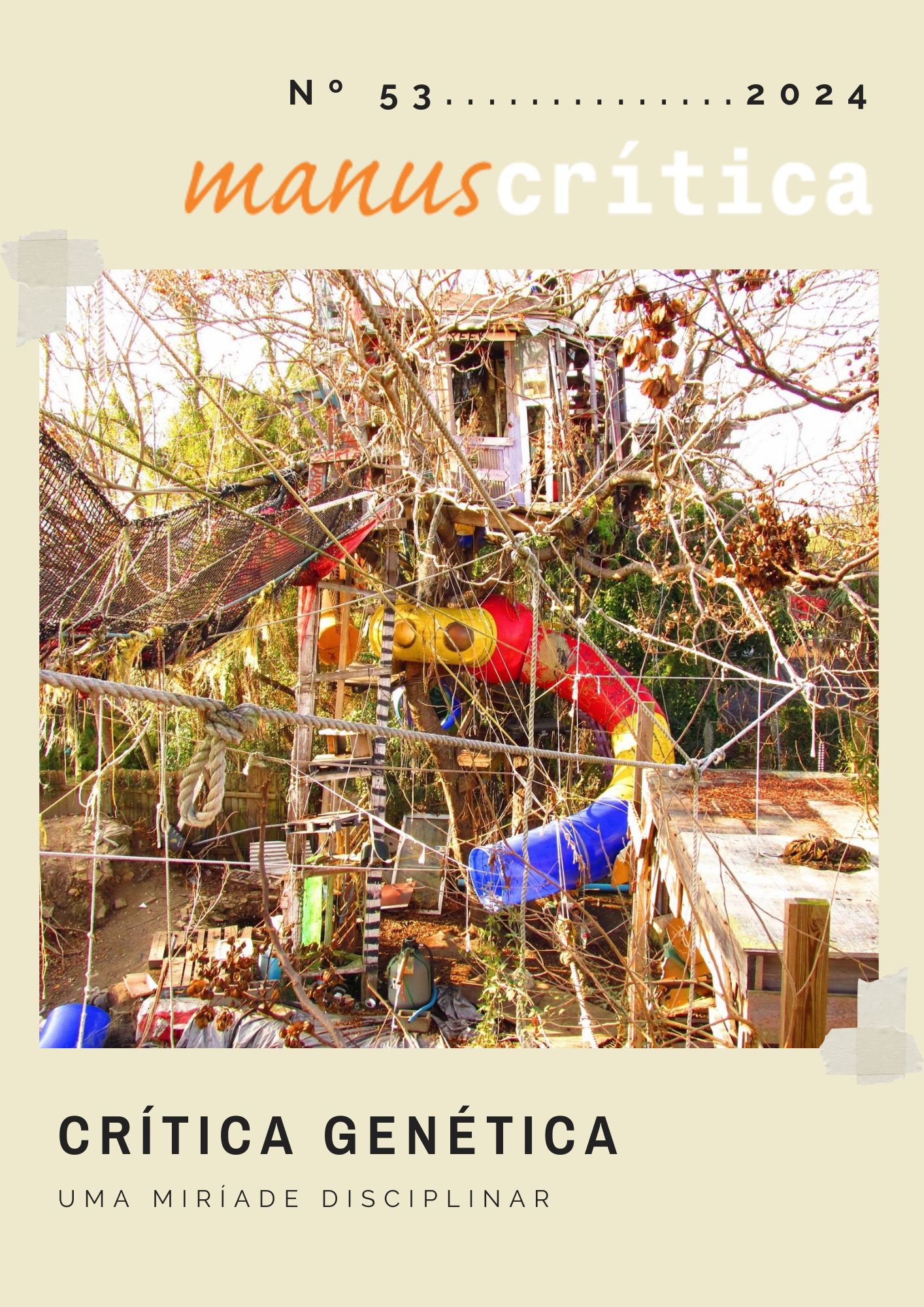The configuration of Orpheus' poetic ethos in four versions of the myth
DOI:
https://doi.org/10.11606/issn.2596-2477.i53p56-79Keywords:
Narrative, Genetic criticism, Intertextuality, Variations, Discursive genresAbstract
The myth of Orpheus possesses a narrative power that has led to its story being told repeatedly, making it an important milestone for Western culture from ancient times to the present day. These narratives have created different versions that maintain the nodal points of the myth while adding particular elements of interest for study based on the production contexts in which those variants originated. In this work, we seek to analyze the passages that refer to Orpheus's descent into the underworld in different versions found in the following texts: Virgil's “Georgics IV” (453-565); Ovid's “Metamorphoses X” (1-84); “Orfeo y Eurídice”, a children's version by Alicia García Herrera; and the play “Orpheus and Eurydice” by Edward Eaton. Our hypothesis states that all versions of the text, despite the narrative and generic differences they present, focus on the configuration of Orpheus as a poet and the development of a poetic ethos for this character. In this sense, it will be important for our analysis to compare versions of the myth that account for the literary genres they subscribe to, to reconstruct the genetic matrix of this story.
Downloads
References
AMOSSY, R. La présentation de soi. Ethos et identité verbale. Paris: PUF, 2010.
BAJTÍN, M. Estética de la creación verbal. México: Siglo Veintiuno, 1982.
BOWRA, C. “Orpheus and Eurydice”. In: The Classical Quarterly, Vol. 2, No. 3/4, pp. 113-126, 1952.
BRIGGS, C. y BAUMAN, R. “Genre, intertextuality and social power”. In: Journal of Linguistical Antropology II, pp. 131-172, 1992.
BRUNER, J. La fábrica de historias. Buenos Aires: FCE, 2003.
CHERTUDI, S. El cuento folklórico. Buenos Aires: OMEP, 1978.
GENETTE, G. Figuras III. Barcelona: Lumen, 1989.
LEBRAVE, J. “Déchiffrer, transcrire, éditer la genèse”. In: GRESILLON, A.; LEBRAVE, J.-L.; VIOLLET, C. Proust à la lettre. Les intermittences de l´ écriture. Charente: Du Lérot, p. 141-162, 1990.
MAINGUENEAU, D. “Problèmes d’ethos”. In: Pratiques, n. 113/114, Metz, pp. 55-67, 2002.
ONG, W. Oralidad y escritura. Tecnologías de la palabra. Ciudad de México: FCE, 1982.
PALLEIRO, M. I. Fue una historia real. Itinerarios de un archivo. Buenos Aires: Instituto de Filología y Literaturas Hispánicas, FFyL/ UBA, 2004.
PALLEIRO, M. I. “Archivos de narrativa y matrices folclóricas: oralidad, escritura y génesis”, en VI Jornadas Internacionales de Filología y Lingüística y Primeras de Crítica Genética (“Las lenguas del archivo”), La Plata, 2013. ISSN 2344-9071. Disponible en: <http://jornadasfilologiaylinguistica.fahce.unlp.edu.ar>. Consultado: 2 mayo 2024.
PLATÓN. Apología de Sócrates, Fedón. Trad. E. A. Ramos Jurado. Madrid: CSIC, 2002.
SEGAL, C. "Ovid's Orpheus and Augustan Ideology". In: Transactions and Proceedings of the American Philological Association, Vol. 103, pp. 473-494, 1972.
VON ALBRECHT, M. "Orfeo en Virgilio y Ovidio". In: Myrtia, No. 10, pp. 17-33, 1995.
Corpus
EATON, E. Orpheus and Euryrice: A verse drama. Dragonfly Publishing, Inc., 2012. Disponible en: Orpheus and Eurydice (scribd.com). Consultado: 15 jul. 2024.
GARCÍA HERRERA, A. Orfeo y Euridice. En Mitología para todas las edades. Madrid: Weeblebooks, 2017. Disponible en: Orfeo y Eurídice / Teseo, Ariadna y El Laberinto Del Minotauro | PDF | Teseo | Minotauro (scribd.com) Consultado: 15 jul. 2024.
OVIDIO. Metamorfosis. Eds. y Trads. C. Alvarez & R. Ma. Iglesias. Madrid: Cátedra, 2005.
VIRGILIO. Bucólicas, Geórgicas. Trad. T. de la Ascensión Recio García. Madrid: Gredos, 1990
Downloads
Published
Issue
Section
License
Copyright (c) 2024 Ileana Kleinman

This work is licensed under a Creative Commons Attribution 4.0 International License.













